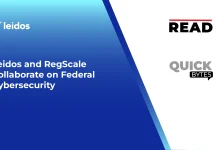With the accelerated approval on January 6, 2023 for early Alzheimer’s disease, Eisai/Biogen’s Leqembi became only the second approved disease-modifying therapy (DMT) for early Alzheimer’s disease. Leqembi’s predecessor, Biogen’s Aduhelm (aducanumab-avwa), was the source of a controversial approval in June 2021, ultimately resulting in CMS’ subsequent refusal to cover anti-amyloid monoclonal antibodies (mAbs) approved under the accelerated pathway outside of a clinical trial. As such, Leqembi entered into a fraught market, albeit one with little competition. Neurologists (n=73) surveyed by Spherix Global Insights in March 2023 report receptivity to Leqembi, with a healthy proportion of survey respondents already prescribing the brand one month after commercial availability.
However, most intend to wait until the drug receives traditional approval before initial trial, meaning broader uptake will be delayed until after the official July 6 PDUFA date. Should such approval be granted, nearly all respondents expect to prescribe the brand, with most starting in the first year following traditional approval. While the current share of Leqembi is low, neurologists expect growth to more than triple in the next six months, forecasting a much higher peak share, and underscoring the nascent demand in this market.
Also Read: athenahealth and Smile Foundation Launch Second Mobile Medical Unit in Bengaluru
Despite immediate positive reactions post-approval, the side-effect profile of Leqembi, specifically amyloid-related imaging abnormalities (ARIA), and the associated monitoring required may hinder uptake of the DMT. Indeed, most neurologists express at least moderate concern regarding ARIA in Leqembi-treated patients, with only a minority believing that the benefits of the DMT outweigh the risks of ARIA.
According to respondents, the serial MRIs required in the first few months of Leqembi treatment, the monitoring burden associated with the drug may indeed limit the number of patients neurologists can manage on the DMT.
One tool that could help ease the burden associated with Leqembi prescribing would be easier-to-use diagnostics, specifically a blood-based Alzheimer’s test. In fact, only a minority of neurologists are currently using the few blood-based amyloid assays available, they predict a substantial increase in use in the future. With the recently announced partnership between Roche and Eli Lilly for Roche’s Elecsys Amyloid Plasma Panel (EAPP), the market may soon have another option to facilitate diagnosis.
SOURCE: PR Newswire




